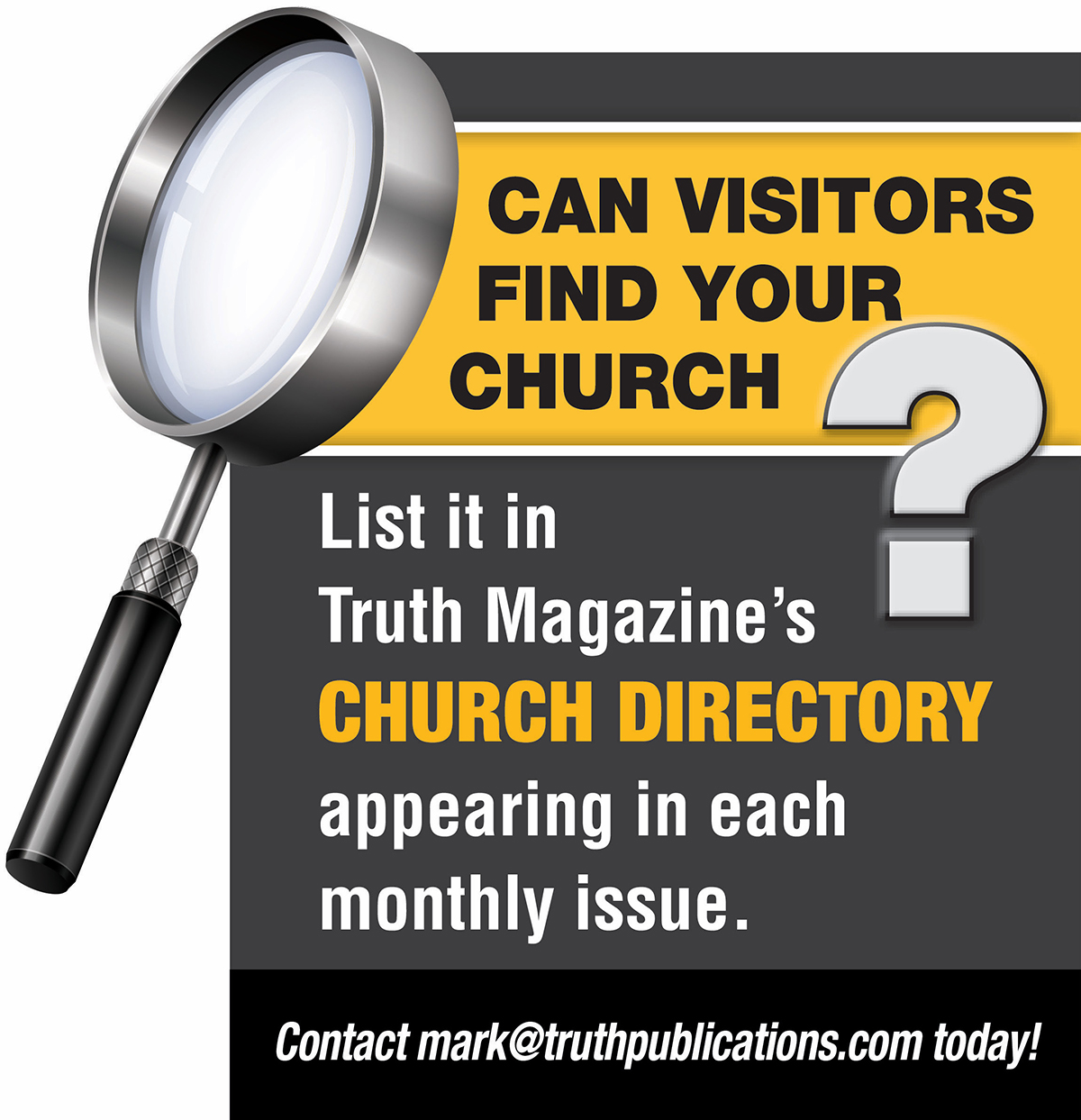

by Kyle Pope
Synopsis: Continuing his study of the biblical teaching on Sheol and Hades, Kyle concludes his survey of the Old Testament evidence, considering what this teaches us about the spiritual dwelling of the dead.
In our last article, we began our study by surveying the use of the word sheōl in the Old Testament and considering the first of two words used in synonymous parallelism with it: shachath and bowr. In this study, we continue by looking at the second word, bowr.
2. Bowr is used sixty-nine times in the Old Testament and translated in the King James Version in the following ways: “pit” (42x), “cistern” (4x), “dungeon” (12x), “well” (9x), and “fountain” (1x). Similar to shachath (but unlike sheōl), in most cases in which it is used, it is clear that only a literal physical pit is being described (Gen. 37:20, 22, 24, 28, 29; 40:15; 41:14; et al.). Yet, also like shachath in several cases, its association with sheōl makes it clear that a spiritual sense is being described. The psalmist writes, “O LORD, You brought my soul up from the grave (sheōl); You have kept me alive, that I should not go down to the pit (bowr)” (Ps. 30:3, NKJV; cf. 28:1). Further, “For my soul is full of troubles, and my life draws near to the grave (sheōl). I am counted with those who go down to the pit (bowr); I am like a man who has no strength, adrift among the dead, like the slain who lie in the grave (qeber), whom You remember no more, and who are cut off from Your hand. You have laid me in the lowest pit (bowr), in darkness, in the depths” (Ps. 88:3-6; cf. 143:7). Solomon speaks of the plotting of the wicked, who say, “Let us swallow them alive like Sheol (sheōl), and whole, like those who go down to the Pit (bowr)” (Prov. 1:12, NKJV).
As was said of sheōl, the proud will be brought down to bowr. For example, Lucifer (Isa. 14:12), used in Scripture to identify, not Satan, but the king of Babylon (Isa. 13:1), is told, “You shall be brought down to Sheol (sheōl), to the lowest depths of the Pit (bowr)” (Isa. 14:15, NKJV).
Just as sheōl is a place hidden from the sight of the living, Isaiah declares, “For the grave (sheōl) cannot praise thee, death can not celebrate thee: they that go down into the pit (bowr) cannot hope for thy truth. The living, the living, he shall praise thee, as I do this day: the father to the children shall make known thy truth” (Isa. 38:18-19, NKJV). We should note, the point here is that the dead cannot hope to learn the truth, thus changing their fate, as opposed to stating that they are incapable of perceiving truth.
Tyre is told, “I will bring you down with those who descend into the Pit (bowr), to the people of old, and I will make you dwell in the lowest part of the earth, in places desolate from antiquity, with those who go down to the Pit (bowr), so that you may never be inhabited; and I shall establish glory in the land of the living” (Ezek. 26:20, NKJV). Here we see “the Pit,” like Sheol in a spiritual sense, is said to be in “the lowest part of the earth” that houses the “people of old.”
Assyria, like a “cedar of Lebanon” (Ezek. 31:3) is said to have been cut down (Ezek. 31:12) and “delivered to death, to the depths of the earth, among the children of men who go down to the Pit (bowr)” (Ezek. 31:14). In this judgment, God declares, “In the day when it went down to hell (sheōl), I caused mourning” (Ezek. 31:15, NKJV), explaining, “I made the nations shake at the sound of its fall, when I cast it down to hell (sheōl) together with those who descend into the Pit (bowr)” (Ezek. 31:16a). In this text, other “trees” (likely referring to other nations) are said to be “comforted” by this in the “depths of the earth” (Ezek. 31:16b), for “they also went down to hell (sheōl) with it, with those slain by the sword; and those who were its strong arm dwelt in its shadows among the nations” (Ezek. 31:17, NKJV). In each of these texts, bowr, like shachath, is being used to describe more fully the place of the dead called Sheol.
Having considered most of the Old Testament references, the question arises as to whether we should understand the realm of Sheol as a conscious or unconscious condition. Two significant passages help us answer this question.
1. Psalm 49. The focus of this Psalm is a contrast between “those who trust in their wealth” (49:6) and the “upright” (49:14). Even the rich cannot “redeem his brother” (49:7a) to give “to God a ransom for him” (49:7b) in the hope that he might “continue to live eternally, and not see the Pit (shachath)” (49:9). The fact is that the wise and the fool all die (49:10a), leaving their wealth (49:10b), houses (49:11), and honor to others (49:12a). In this, the one who trusts in wealth “is like the beasts that perish” (49:12b).
The psalmist explains that this is “the way of those who are foolish” and those who follow them (49:13)—”like sheep they are laid in the grave (sheōl)” (49:14a) and their beauty is “consumed in the grave (sheōl)” (49:14c)—but, “The upright shall have dominion over them in the morning” (49:14b). The term “morning” here may have an eschatological meaning because the psalmist confidently asserts, “God will redeem my soul from the power of the grave (sheōl), for He shall receive me” (49:15). This clearly reflects confidence in a conscious reception by God.
This Psalm ends with encouragement not to fear the rich (49:16) because, in death, the rich man takes nothing with him (49:17) when he goes to the “generation of his fathers” (49:19). Again, the one who “does not understand” this “is like the beasts that perish” (49:20). The psalmist here affirms (at the very least for the “upright”—with whom he identifies) a conscious state whereby God will “receive” him. If not, there is no contrast.
2. Ezekiel 32. After pronouncing judgment on Ammon, Moab, and Edom (25:1-17), Tyre and Sidon (26:1-27:36; 28:1-26), and Egypt (29:1-31:18), the prophet is commanded to pronounce a lament of judgment on Pharaoh (32:2). This lamentation calls Pharaoh to consider his future contact with “those who go down to the Pit (bowr)” (32:18). While this language is certainly poetic, it offers some profound facts about the afterlife.
Referring to Pharaoh, Ezekiel is told, “The strong among the mighty shall speak to him out of the midst of Sheol (sheōl)” (32:21a, ASV). We might take this to mean that the dead speak to him through their example—they were powerful, but now lie in shame—but this is referring to what Pharaoh and his multitudes will see and hear after death. The Lord promises him, “I will lay your flesh on the mountains, and fill the valleys with your carcass” (32:5, NKJV).
Pharaoh is then told who will be in Sheol. These include Assyria (32:22-23), Elam (32:24-25), Meshach and Tubal (32:26-28), Edom (32:29), and the Sidonians (32:30). Although these, like Pharaoh, “caused terror in the land of the living” (32:25; cf. 32:24, 26-27, 32), when Pharaoh is said to see them “bear their shame with those who go down to the Pit (bowr)” (32:24-25, 30)—Ezekiel is told, “Pharaoh will see them and be comforted over all his multitude”—that is, he is consoled to see they have died as his multitudes have died—”Pharaoh and all his army, slain by the sword” (32:31). If the condition of the soul in Sheol is not conscious, there would be no way that Pharaoh could “see” those listed here. If these sinful souls pass out of existence, they do not “bear their shame” and could not “speak to him out of the midst of Sheol” (ASV).
In our final study, we will consider the use of the Greek word hadēs in the New Testament, looking at how it is used to translate Old Testament quotations about Sheol. We will also look at how its independent use and its connection with three New Testament synonyms further informs us about this place of the dead and its final demise.
Author Bio: Kyle preaches for the Olsen Park church of Christ in Amarillo, TX. He has written several books published by Truth Publications including How We Got the Bible. The church website is olsenpark.com. He can be reached at kmpope@att.net.

